Introduction
For those who struggle with acne, the search for an effective treatment that clears breakouts without irritating the skin can be exhausting. Traditional treatments like benzoyl peroxide, salicylic acid, and retinoids have long been the gold standard, but they often come with unwanted side effects such as dryness, peeling, and sensitivity. Enter hypochlorous acid (HOCl)—a gentle, yet powerful solution that fights acne-causing bacteria without disrupting the skin barrier.
So, is hypochlorous acid a game-changer in acne treatment? In this blog, we compare HOCl to traditional acne treatments and explore its effectiveness, scientific backing, and real customer experiences to help you determine the best option for your skin.

Traditional Acne Treatments: The Pros and Cons
1. Benzoyl Peroxide

How It Works
Benzoyl peroxide (BPO) is a strong antibacterial agent that works by reducing the bacteria Cutibacterium acnes(formerly known as Propionibacterium acnes), one of the main culprits behind acne breakouts. It also helps unclog pores by breaking down excess oil and dead skin cells.
Pros:
✔ Kills acne-causing bacteria effectively.
✔ Available in different strengths (2.5%, 5%, and 10%).
✔ Can help reduce inflammation in moderate to severe acne.
Cons:
❌ Causes dryness, peeling, and irritation, especially for sensitive skin.
❌ Can bleach fabrics (like towels and pillowcases).
❌ Not suitable for long-term use in some cases due to irritation.
2. Salicylic Acid

How It Works
Salicylic acid is a beta-hydroxy acid (BHA) that works as an exfoliant. It penetrates deep into the pores, dissolving oil and dead skin cells that cause acne. It’s particularly effective for treating blackheads and whiteheads.
Pros:
✔ Exfoliates and unclogs pores.
✔ Reduces inflammation and redness.
✔ Helps control excess oil production.
Cons:
❌ Can cause over-drying and irritation, especially when overused.
❌ May lead to skin purging before improvement occurs.
❌ Less effective for deep cystic acne.
3. Retinoids (Retinol, Tretinoin, Adapalene)

How They Work
Retinoids are derived from vitamin A and help with cell turnover, preventing clogged pores and reducing acne. They are considered one of the most effective treatments for long-term acne management.
Pros:
✔ Helps prevent and treat acne breakouts.
✔ Reduces hyperpigmentation and scarring.
✔ Promotes smoother skin texture.
Cons:
❌ Can cause severe irritation, peeling, and sensitivity in the first few weeks of use.
❌ Requires consistent use and can take months to show results.
❌ Increases sun sensitivity, requiring diligent SPF use.
Hypochlorous Acid (HOCl): The Acne Treatment Without the Harsh Side Effects
How HOCl Works for Acne
Unlike benzoyl peroxide, salicylic acid, and retinoids, hypochlorous acid is a naturally occurring substance produced by the body’s immune system to fight bacteria and inflammation. When applied to the skin, HOCl:
-
Kills acne-causing bacteria without disrupting the skin barrier.
-
Reduces inflammation and redness without irritation.
-
Balances the skin's pH, preventing excessive dryness or oiliness.
-
Speeds up skin healing, helping to reduce acne scars and irritation.

Pros of Hypochlorous Acid:
✔ Gentle on the skin – No peeling, dryness, or irritation.
✔ Antibacterial and anti-inflammatory – Targets acne-causing bacteria while calming the skin.
✔ Safe for all skin types – Even for the most sensitive and reactive skin.
✔ Can be used alongside other treatments – Unlike some ingredients, HOCl doesn’t conflict with other acne treatments.
✔ Fast absorption and no residue – Feels like water on the skin, making it perfect for daily use.
Cons of Hypochlorous Acid:
❌ Needs to be used consistently for best results.
❌ Some products on the market may not contain a stable form of HOCl, so quality matters.
Scientific Studies Supporting HOCl for Acne Treatment
Research has shown that hypochlorous acid is highly effective in killing bacteria while being far less irritating than traditional acne treatments.
-
A study published in the Journal of Dermatological Science found that HOCl can significantly reduce acne lesions and inflammation without compromising skin hydration. Read the study here.
-
Another study in the International Journal of Antimicrobial Agents highlighted HOCl’s ability to fight antibiotic-resistant acne bacteria, making it an excellent alternative to traditional antimicrobial treatments. Read the study here.
Real Customer Experiences: What People Are Saying
Emily, 26 – Sensitive, Acne-Prone Skin
"I’ve tried everything—benzoyl peroxide dried my skin out, and retinoids made me peel. Hypochlorous acid is the only thing that keeps my breakouts under control without irritation. I use it after cleansing, and my skin feels soothed and refreshed."
James, 30 – Gym Enthusiast with Occasional Acne
"Sweat and gym bacteria always caused breakouts for me. I started using an HOCl spray post-workout, and it’s kept my skin clear and fresh without the usual redness."
Sophie, 22 – Struggled with Cystic Acne
"I was skeptical about hypochlorous acid at first, but it’s helped reduce the size and redness of my cystic acne without making my skin flaky. I love that it doesn’t sting like benzoyl peroxide."

Final Verdict: Is HOCl a Game-Changer?
If you’ve struggled with dryness, irritation, or peeling from traditional acne treatments, hypochlorous acid may be the gentler alternative you need. While benzoyl peroxide, salicylic acid, and retinoids remain effective, they often come with trade-offs that can make acne treatment difficult for those with sensitive or reactive skin.
For those looking for a non-irritating, science-backed alternative, HOCl offers a new, effective way to manage acne while supporting overall skin health.
Where to Get Hypochlorous Acid for Acne
If you're ready to try HOCl, check out Rescue Me Spray by Enzo London Skin—a dermatologist-approved formula designed to fight acne without irritation.
Would you like to learn more about how HOCl fits into your skincare routine? Drop your questions in the comments!

